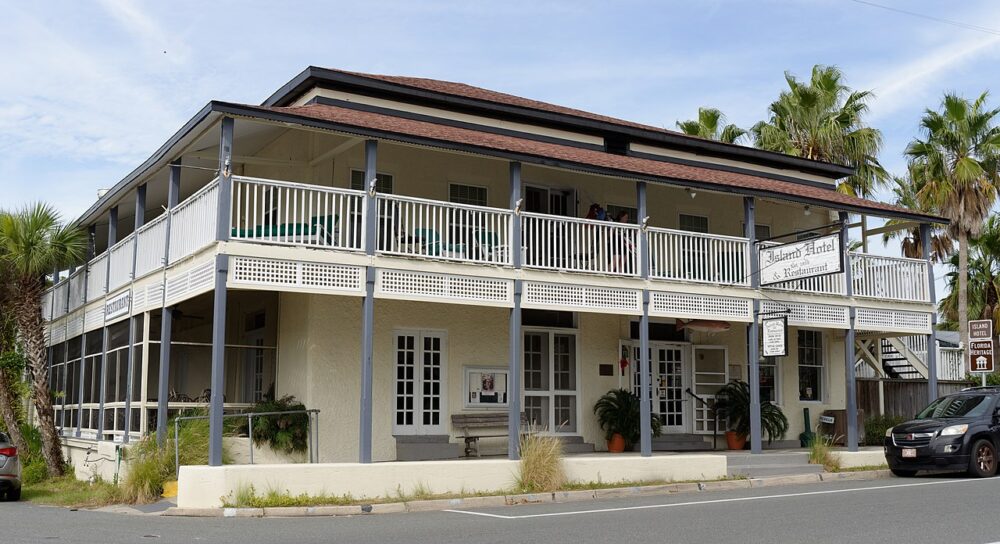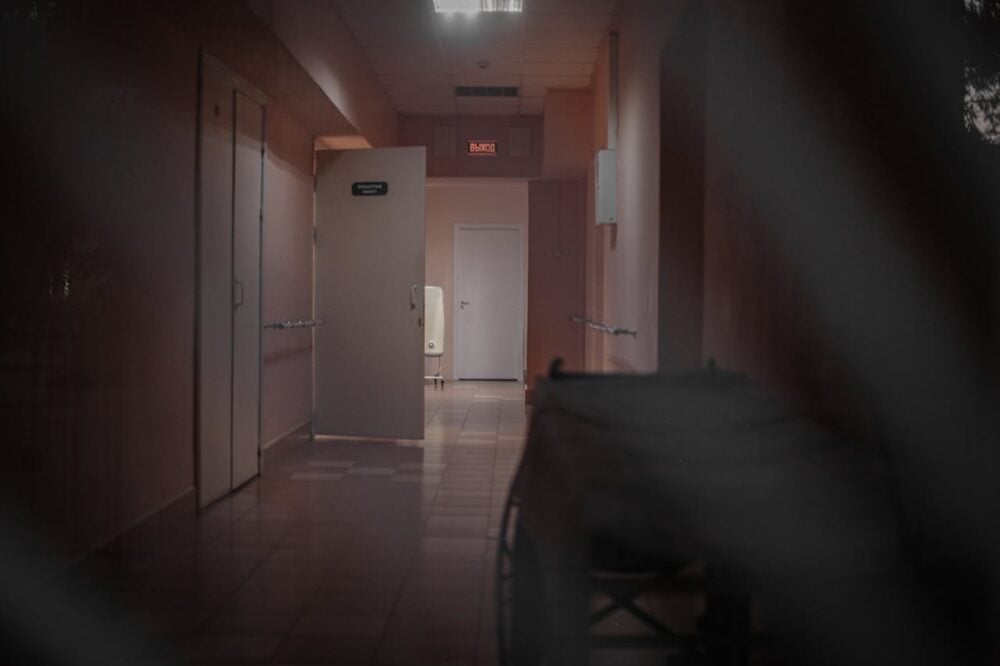Recognizing subtle cues can help guests avoid hotels with poor management practices.

Subtle signs often reveal more about a hotel’s management quality than obvious flaws. From inconsistent housekeeping to lingering odors, these details impact guest experience and satisfaction. Understanding such indicators enables travelers to make informed choices, helping them avoid disappointing stays. Careful observation of staff behavior, maintenance, and facility conditions provides valuable insight into how well a hotel is managed overall.
1. Noticeable wear and tear in public areas without timely repairs.

Visible deterioration of public areas suggests neglect in upkeep, quickly becoming more than a mere cosmetic issue. A faded carpet in a lobby, for instance, can indicate deeper management problems, hinting at a lack of priority for regular, proactive repairs.
In contrast, well-maintained environments reflect a commitment to guest comfort and long-term planning. Guests may overlook minor blemishes, but repeated oversight erodes trust and satisfaction, as mentioned by Canary Technology. Patterns of negligence become apparent, impacting perceptions of overall quality and reliability within a hotel.
2. Unpleasant odors lingering in hallways or guest rooms consistently.

Persistent unpleasant odors can signal inadequate maintenance and cleaning protocols. A musty hallway or a faint old-smoke scent in guest rooms might suggest deeper issues with ventilation or previous housekeeping lapses that affect the entire property.
Guests often notice such details unconsciously, affecting their overall experience. The lingering odors can lead to assumptions about hidden cleanliness failures, diminishing their confidence in the establishment’s commitment to their well-being and safety, as stated, Little Hotelier.
3. Inconsistent housekeeping schedules leading to unclean or disorganized rooms.

Inconsistent housekeeping schedules present a challenge, as guests expect routine cleanliness. Finding an unmade bed or untidy bathroom upon check-in can shift expectations and create a sense of disarray in the overall stay.
Such unpredictability reflects larger organizational deficiencies, highlighting a possible miscommunication or staff shortage, according to Site Minder. Regular disruptions in cleaning leave guests questioning the consistency and reliability of the hotel’s services, which can diminish their sense of trust and comfort.
4. Front desk staff appearing disinterested or untrained in guest services.

Front desk staff serve as the hotel’s primary point of contact, playing a critical role in shaping the guest’s experience. Staff who appear untrained or disengaged can damage first impressions and suggest a gap in management’s approach to guest services.
A friendly, knowledgeable employee can transform a simple check-in into a warm welcome. Conversely, an indifferent front desk interaction may imply broader issues within the employee training program, impacting guest satisfaction and potentially deterring future visits.
5. Frequent issues with basic amenities like water pressure or heating.

Consistent problems with basic amenities like erratic water pressure or inconsistent heating quickly frustrate guests, implying inefficiency or neglect in behind-the-scenes services. Such issues disrupt daily routines, turning what should be familiar comfort into an inconvenience.
Where a well-managed property promptly addresses these concerns, ongoing disturbances suggest a deeper operational breakdown. These seemingly minor issues reflect significantly on the overall competence and responsiveness of hotel management, influencing guest perceptions.
6. Lack of clear signage making navigation around the hotel confusing.

Clear signage plays a crucial role in ensuring a guest feels confident navigating a hotel’s spaces. When signs are confusing or sparse, guests may experience repeated frustrations, reflecting poorly on management’s attention to detail.
A well-organized hotel considers the visitor’s experience from entry to exit, recognizing that the ease of movement contributes significantly to overall comfort. Disorganized navigation can lead not only to inconvenience but also to frustration, affecting overall satisfaction with the stay.
7. Slow or non-responsive maintenance when guests report problems promptly.

Guests reporting problems expect swift or at least responsive maintenance. Slow or negligent problem-solving can transform a simple issue into a disruptive concern, hinting at deeper inefficiencies in hotel operations.
Effective management prioritizes swift response times to maintain guest satisfaction, ensuring that minor inconveniences don’t escalate. Delays in addressing maintenance requests reflect broader mismanagement concerns, often leaving guests feeling undervalued and ignored, thereby impacting their overall stay.
8. Common areas showing clutter or outdated, poorly maintained furnishings.

Cluttered common areas or outdated furnishings can tarnish a hotel’s image, hinting at underlying management neglect. A dusty lounge table or threadbare couch might not seem significant but signifies lapses in maintaining a welcoming atmosphere.
Refreshing common spaces reflects an establishment’s pride and commitment to guest experience. Such neglect can lead to assumptions about similar oversight elsewhere, gradually eroding trust and satisfaction and questioning management priorities in maintaining a quality experience.
9. Poorly maintained landscaping or exterior spaces reflecting neglect.

Neglected landscaping or poorly maintained exterior spaces offer a window into management priorities. An unkempt garden or peeling facade can tarnish a property’s allure, affecting the initial impression before stepping inside.
Attractive, well-maintained exteriors invite guests and establish the tone for their experience. Conversely, visible neglect outside may lead patrons to anticipate further issues within, subtly altering their perception of care and attention paid to the guest’s overall stay.
10. Inadequate lighting in corridors and public spaces causing safety concerns.

Dimly lit corridors and public spaces create uneasy environments. Inadequate lighting not only raises safety concerns but also cuts into comfort—an oft-unnoticed yet crucial element of hotel operations most guests take for granted.
Effective lighting management greatly impacts hospitality, enabling clear pathways and a sense of security. From hidden corners to uneven lighting, these deficits imply a lapse in maintaining vital guest safety, casting shadows on their overall experience and comfort.
11. Limited or unreliable Wi-Fi connectivity throughout the premises.

Limited or unreliable Wi-Fi connectivity hinders essential communication and poses routine disruptions, underscoring lapses in basic service provisions most guests expect. An erratic connection transforms a simple task into a cumbersome venture, driving modern frustrations.
Strong, consistent connectivity is as crucial as hot water or a comfortable bed. Network reliability reflects significantly on the management’s competence in meeting contemporary guest standards, where digital access plays a central role in daily life and communication.
12. Confusing or inconsistent communication about hotel policies or services.

Inconsistent information about services or hotel policies spells confusion, fracturing the guest experience through uncertainty and missteps. When different staff convey conflicting details, it reveals cracks in internal communication with potential for guest dissatisfaction.
Clear, consistent communication acts as a bedrock for effective hospitality. A dependable informational structure supports guest confidence, ensuring that all aspects of their stay—from amenities to hotel regulations—are transparent and easily understood, fostering trust in the hotel’s operations.
